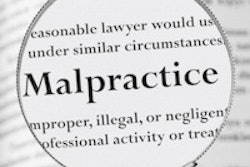
While some dental schools are now starting to offer some practice management and business training, it's likely many aspects of running a successful practice still aren't covered. You may not find out about these topics until you're out of school and facing the realities of running a small, or not-so-small, business. For example, what happens if you are in an accident and become disabled?
 Steven Edelstein, vice president of the Hilb Group of New York.
Steven Edelstein, vice president of the Hilb Group of New York.For many practices, business overhead expense insurance (BOEI) is one solution. Simply, BOEI is just that -- a policy that pays actual overhead expenses of your office while you are totally disabled.
You are considered to be totally disabled when you cannot perform the substantial and material duties of your regular occupation because of sickness or injury. In addition, you must be regularly attended by a licensed physician. To be covered, the sickness must begin while your policy is in force, and any total disability resulting from an accident must begin within 365 days of the accident. This insurance can help you and your practice make it through a health crisis by paying many of your business' expenses during this time.
It also allows you to use your personal disability insurance policy to maintain your lifestyle, while the business overhead expense insurance keeps your business going until you can return to work or until you find a suitable buyer. If you are temporarily disabled, you can use the business overhead policy to pay the expenses while you are out. Rates vary based on carrier, age, and benefit amount.
How does it work?
Let's look at two typical hypothetical examples.
Dr. Jones secured business overhead expense insurance for $20,000 per month when he was in his early 40s (for a $726 semiannual premium). When Dr. Jones turned 50, he was skiing with his family over winter break and fell. To try to keep his balance, he braced himself with his hands and fractured bones in both of his hands.
After his initial scare, he thought immediately of his practice and started to wonder how he was going to pay his employees, rent, and other practice expenses. That's where his BOEI came in. Dr. Jones filed a claim and began collecting $20,000 per month to help him pay for his expenses.
Across town, Dr. Smith in a solo practice didn't think that this type of insurance was going to be important. If anything happened to him, he thought he would be able to sell his practice very easily.
Unfortunately, Dr. Smith had a stroke at age 55. After the stroke, he tried desperately to sell his practice, but between the economy and a glut of dentists in his area, it took longer than he anticipated to find a suitable buyer. Unfortunately, he still needed to pay rent, taxes, insurance premiums, and other expenses to keep his practice running while he sought to negotiate a sale. He was forced to use his disability insurance and liquidate his assets to pay these expenses.
This is obviously not an ideal situation, as doctors have had to sell their practices for less than optimal value, because they needed to get out from under their financial burden.
Key points
In most cases, depending on the carrier, BOEI pays covered overhead expenses for 12 to 24 months and lets you choose the monthly benefit that best suits your needs. Premiums are usually waived after six months of total disability, and it is available whether you're in private practice or a partnership.
Eligible expenses include, but are not limited to, rent, employee salaries (not yours as yours is covered under disability insurance) and their insurance premiums, malpractice insurance premiums, property and casualty insurance premiums, property taxes, utilities and maintenance, and many more.
Also, the premiums are typically tax-deductible as a business expense. This plan is designed to conform with the Internal Revenue Service ruling (55-264, IRB 1955-19, p. 8), allowing business overhead expense insurance to be deducted as a business expense in computing federal income tax. Benefits, however, are generally taxable. Consult your personal tax advisor for specific details.
Business overhead expense insurance can ensure that you have the funds available to pay the salaries of your hard-working employees and keep the practice going in your absence. For a low, tax-deductible premium, you can know that your practice can keep going if you become disabled.
Steven Edelstein is the vice president of the Hilb Group of New York, which specializes in proprietary group insurance benefit administration for medical and dental societies and their members in 49 states. If you would like more information, he can be reached at [email protected].
The comments and observations expressed herein do not necessarily reflect the opinions of DrBicuspid.com, nor should they be construed as an endorsement or admonishment of any particular idea, vendor, or organization.



















